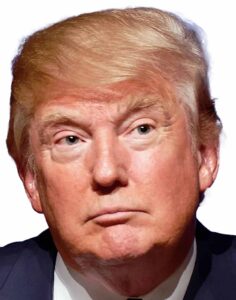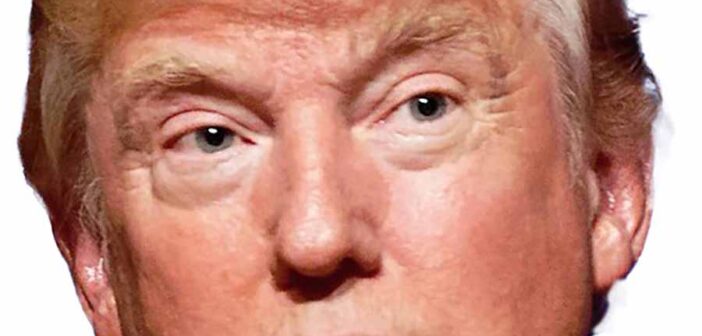
As the deal between Ursula von der Leyen and Donald Trump is recvealed today, the global aviation industry is bracing itself for the consequences, including an unravelling of the zero tariffs agreement that has been in place since 1979.
The global aviation industry is facing unprecedented disruption as the United States’ imposition of tariffs, including a proposed 15pc duty on European Union exports, threatens to reshape aircraft deliveries and sales. Trump administration’s trade policies, which include a 10pc baseline tariff on all imports and higher reciprocal duties—such as 26pc on India and a temporarily reduced 30pc on Chinese goods—have ended the decades-long duty-free regime under the 1979 Agreement on Trade in Civil Aircraft. The reinstatement of steel and aluminium tariffs on 12 March 2025, adding an estimated £4bn annually to manufacturing costs, has further strained an industry already grappling with post-pandemic recovery and supply chain fragility. The proposed 15pc tariff on EU exports has heightened tensions, with the EU poised to retaliate with duties on Boeing aircraft, potentially escalating a transatlantic trade war.
Boeing, the US aerospace giant, is under significant pressure. With 80pc of its 2025 delivery pipeline targeting non-US customers, the company faces rising costs from tariffs on imported components, which include 2,000 parts per Boeing 737 from over 700 global suppliers. In China, Boeing’s market share is eroding as state-owned airlines shift towards Airbus and COMAC, with two 737 MAX jets returned to Seattle amid trade disputes. Boeing has remained largely silent but is reportedly lobbying for exemptions, arguing that tariffs undermine its competitiveness and the US’s £60bn annual aerospace trade surplus. Industry analysts warn that retaliatory EU tariffs could further erode Boeing’s position in Europe, where €10.5bn of US aircraft were sold in 2024.
Airbus, Boeing’s European rival, is better insulated due to its Alabama assembly line and Tianjin facility in China, but its global supply chain remains exposed. CEO Guillaume Faury has called the tariffs a “lose-lose” scenario, warning that duties on parts could disrupt production and raise aircraft prices. Airbus has firmly stated it will not absorb tariff costs for US customers, with Faury noting on 30 April 2025 that import duties are the responsibility of airlines. The company is exploring options to redirect deliveries to non-US markets, leveraging its sold-out order book through 2030 to mitigate financial impacts.
Airlines are bearing the brunt of these costs. Delta Air Lines has refused to pay tariffs on its 43 Airbus orders, with CEO Ed Bastian exploring deferrals or rerouting deliveries through international hubs like Tokyo to exploit tariff loopholes. American Airlines, facing duties on Airbus A321 XLR jets, has called the tariffs unsustainable, with CFO Devon May advocating for a return to the 1979 agreement’s duty-free status.
Ryanair, Europe’s largest low-cost carrier, threatened to cancel its £24bn Boeing order for 330 aircraft if tariffs inflate prices. CEO Michael O’Leary has suggested registering new Boeing deliveries under an English Air Operator Certificate (AOC) to exploit a recent England-US trade deal exempting Rolls-Royce engines, a move that could save millions in duties but risks legal scrutiny under international trade rules. O’Leary also floated sourcing aircraft from China’s COMAC, though its C919 lacks European certification, limiting feasibility.
Governments are navigating a complex landscape. The US justifies tariffs as a means to bolster domestic manufacturing and address trade deficits, but a May 2025 ruling by the US Court of International Trade declared certain tariffs under the International Emergency Economic Powers Act illegal, creating uncertainty. Canada has retaliated with 25pc duties on £17bn of US goods, while China’s temporary ban on Boeing deliveries signals further escalation.
The EU, led by Trade Commissioner Maros Sefcovic threatened countermeasures, included tariffs on Boeing jets, as reported by the Financial Times on 7 May 2025. England has separately secured exemptions for Rolls-Royce, highlighting a strategic divergence within Europe. The French and German governments, aligned with Airbus, support retaliatory tariffs on finished US aircraft but oppose duties on parts to protect transatlantic supply chains.
Trade associations, including the Aerospace Industries Association (AIA) and Airlines for America, are united in their opposition. The AIA, representing US manufacturers, warns that tariffs could increase the risk of counterfeit parts and delay supplier certification by a decade, threatening air safety. The General Aviation Manufacturers Association has highlighted the administrative burden of tariffs on parts crossing borders multiple times, with a Boeing 737’s components often passing through several countries. The International Air Transport Association (IATA) notes that aircraft delivery backlogs, now at 17,000 aircraft, could worsen, constraining airline growth and inflating ticket prices.
The case for exempting aircraft manufacturers from duties is compelling. The 1979 Civil Aircraft Agreement fostered a £60bn US trade surplus by enabling duty-free trade, supporting 275,000 American jobs through Airbus’s US supply chain alone. Tariffs disrupt this ecosystem, raising costs for airlines and passengers while undermining competitiveness against emerging players like COMAC. Ryanair’s English AOC strategy, while innovative, underscores the industry’s desperation to navigate trade barriers, though its legality remains untested. As negotiations falter, the aviation sector braces for higher fares, delayed deliveries, and a fragmented global market, with stakeholders urging a return to free trade to preserve the industry’s economic contributions.




